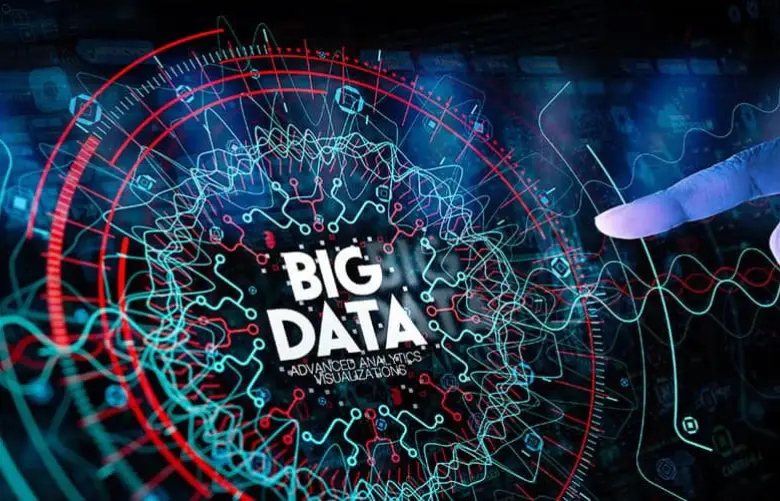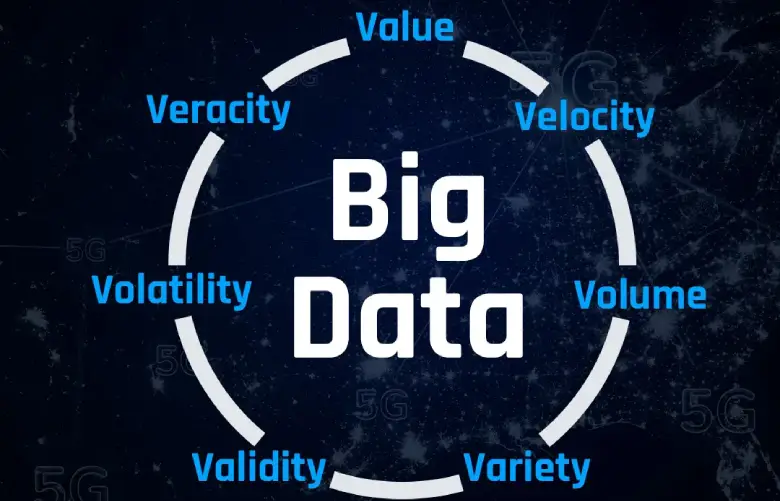In today’s digital era, the amount of data generated is growing exponentially. This vast amount of data, known as big data, holds immense potential for businesses, governments, and organizations across various sectors. However, big data is not just about its sheer size; it possesses key characteristics that make it distinct and challenging. In this blog, we will delve into the five key characteristics of big data, often called the “5 Vs”: Volume, Variety, Velocity, Veracity, and Variability. Understanding these characteristics is crucial for effectively harnessing the power of big data.
What is Big Data?
Big data is defined as complex and extremely large data sets that cannot be easily processed or managed using traditional data processing techniques. It comprises of structured, unstructured, and semi-structured data from diverse sources like social media, sensors, transactional systems, and more. The three primary dimensions of big data are volume, variety, and velocity, collectively shaping its unique characteristics. Let’s look at the 5 vs of big data in detail further in this guide.

Learn What is Big Data Architecture?

Get curriculum highlights, career paths, industry insights and accelerate your data science journey.
Download brochure
Significance of Big Data
The significance of big data lies in its potential to unlock valuable insights and drive informed decision-making. By analyzing large and diverse data sets, organizations can gain a deeper understanding of customer behavior, optimize operations, improve products and services, enhance cybersecurity, and even predict future trends. Big data has revolutionized industries like healthcare, finance, retail, and manufacturing, empowering them to stay competitive in a data-driven world. Let’s look at the 5 vs of big data in detail further in this guide.
5 Key Characteristics of Big Data
The primary characteristics or the 5 Vs of big data include:
1. Volume
Volume refers to the vast amount of data generated and collected by organizations. Big data sets can range from terabytes to petabytes and beyond. The massive volume of data presents both opportunities and challenges.
Examples and Challenges in Processing Large Volumes of Data:
- Social media platforms generate millions of daily posts, comments, and likes.
- E-commerce websites track numerous customer transactions and interactions.
- Challenges: Storage capacity, data transfer speeds, and processing power requirements.
2. Variety
Variety encompasses the diverse types and formats of data found within big data sets. It includes structured data (organized and easily searchable), unstructured data (lacking a predefined structure), and semi-structured data (partially organized).
Structured, Unstructured, and Semi-Structured Data:
- Structured Data: Relational databases, spreadsheets, and other organized formats.
- Unstructured Data: Social media posts, emails, images, videos, and text documents.
- Semi-Structured Data: XML or JSON files, log files, sensor data, and emails.
3. Velocity
Velocity refers to the speed at which data is generated, processed, and analyzed in real-time or near-real-time. With the rise of IoT devices, social media, and online transactions, data is being produced at an unprecedented pace.
Challenges and Opportunities in Processing and Analyzing Streaming and Real-time Data:
- Streaming Data: Data is generated continuously from sensors, machines, and social media feeds.
- Real-time Data: Instantaneous data updates, enabling timely decision-making.
- Challenges: Efficient data capture, storage, and analysis in real time.
- Opportunities: Real-time analytics, fraud detection, predictive maintenance, and personalized recommendations.
4. Veracity
Veracity refers to the accuracy, reliability, and trustworthiness of the data within big data sets. Ensuring data veracity is essential for making sound decisions based on reliable information.
Importance of Data Veracity in Big Data:
- Reliable Insights: High-quality data leads to more accurate and trustworthy insights.
- Decision-making: Businesses rely on accurate data to make informed decisions.
- Trust: Data veracity builds trust among stakeholders and customers.
Challenges Related to Data Quality, Accuracy, and Reliability:
- Data Inconsistency: Duplicates, missing values, and data entry errors.
- Data Bias: Inaccurate or incomplete data leading to biased analysis.
- Data Integrity: Maintaining data accuracy during collection, storage, and processing.
5. Variability
Variability refers to the inconsistency and volatility of data in terms of its format, structure, and meaning. Data sources and formats can change over time, adding complexity to the analysis process.
Understanding the Variability of Data in Big Data:
- Data Format Changes: Data arriving in different formats and versions.
- Data Schema Evolution: Changes in the structure and organization of data.
- Semantic Variability: Data ambiguity and inconsistencies in meaning.
6. Value
While not part of the original “5 Vs,” value represents the ultimate goal of big data. Organizations can create value and gain a competitive advantage by extracting insights and actionable information from big data sets.
Examples of How Big Data has been Utilized to Drive Business Value:
- Personalized Marketing: Analyzing customer data to deliver targeted advertisements.
- Predictive Maintenance: Using sensor data to predict equipment failures and optimize maintenance schedules.
- Fraud Detection: Applying advanced analytics to identify fraudulent activities in real time.

Advantages and Disadvantages of Big Data Processing
Advantages:
- Greater insights and understanding of complex phenomena.
- Enhanced decision-making based on data-driven evidence.
- Improved operational efficiency and productivity.
- Enhanced customer experience through personalization and targeted offerings.
Disadvantages:
- Data security and privacy concerns.
- Technical challenges in handling and processing large-scale data.
- Potential biases in data collection and analysis.
- High costs associated with data storage, processing, and analytics infrastructure.
Conclusion
Big data’s characteristics of volume, variety, velocity, veracity, and variability present both challenges and opportunities. Organizations that can effectively manage and analyze big data stand to gain valuable insights and drive innovation. By understanding these key characteristics, businesses can harness the true potential of big data and stay ahead in today’s data-centric world.
FAQs
Big data is large and complex data sets that are difficult to manage or process using traditional methods. It consists of structured, unstructured, and semi-structured data from various sources.
The 5 Vs of big data are Volume, Variety, Velocity, Veracity, and Variability.
The major types of big data include structured, unstructured, and semi-structured data.
The 5 characteristics of big data are Volume, Variety, Velocity, Veracity, and Variability.
Big data is important because it enables organizations to gain valuable insights, make informed decisions, improve operations, enhance customer experiences, and drive innovation. It has transformative potential across various industries.
Updated on December 10, 2024










